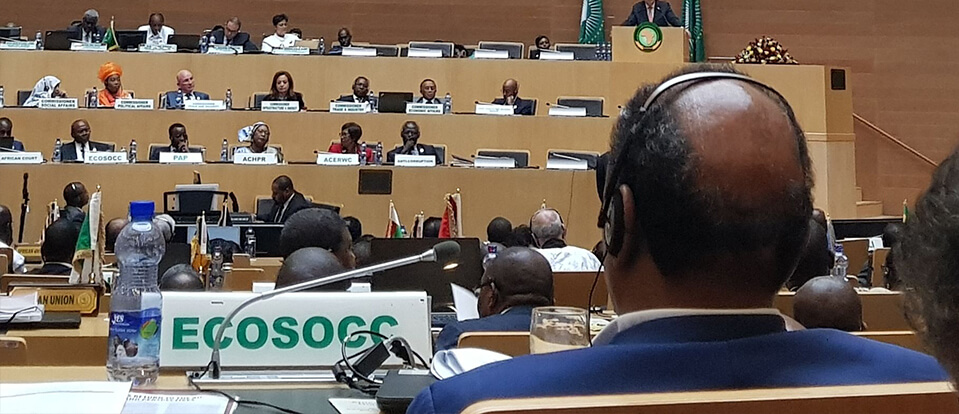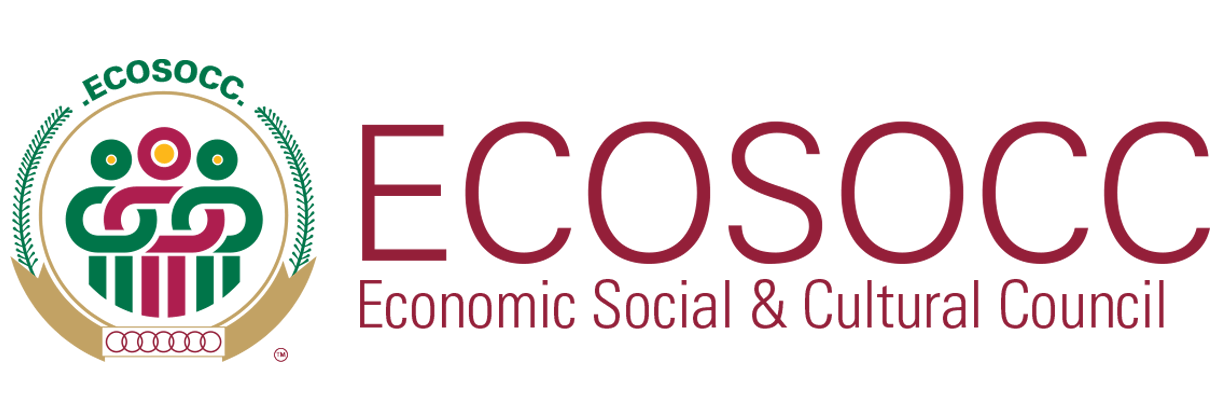The Genesis of ECOSOCC

On the occasion of its inauguration in Durban, South Africa in July 2002, the African Union embarked on a course to transform and integrate the Continent. The aims and aspirations of the new Union were a response to the calls for democracy and development from Africa’s vibrant civil society institutions. The Continent’s leaders were determined to build a Union that was people-oriented. Aware of the rich and diverse human and institutional resources at the grassroots level, the new Union, then, would be devoted to building strong partnerships between the governments and all segments of the society. The impulse is not for the African Union to organize civil society. Rather the organizing principle of the ECOSOCC of the African Union is one in which civil society would organize themselves to work with the Organization.
The distinctive character of the African Union’s ECOSOCC is that it is an opportunity for African civil society to play an active role in charting the future of the Continent, organizing itself in partnership with African governments to contribute to the principles, policies and programmes of the Union.
Established under the provisions of Articles 5 and 22 of the African Union’s Constitutive Act, ECOSOCC is the vehicle for building a strong partnership between governments and all segments of African civil society. The Statute of ECOSOCC, adopted by the Heads of State and Government at the Third Ordinary Session of the Assembly in July 2004 defines it as an advisory organ of the African Union composed of different social and professional groups of the Member States of the African Union [Assembly/AU/Dec.42 (III)].
These CSOs include but are not limited to the following: a)Social groups such as those representing women, children, the youth, the elderly and people with disability and special needs; b)Professional groups such as associations of artists, engineers, health practitioners, social workers, media, teachers, sport associations, legal professionals, social scientists, academia, business organizations, national chambers of commerce, workers, employers, industry and agriculture as well as other private sector interest groups; c)Non-governmental organizations (NGOs), community-based organizations (CBOs) and voluntary organizations; d) Cultural organizations and e) social and professional groups in the African Diaspora in accordance with the definition approved by the Executive Council.
Launch of the First Permanent General Assembly – Dar es Salaam, September 09th 2008, the African Union (AU) took a decisive step in its efforts to consolidate the institutional architecture of the Organization with the Launch of the Economic, social and Cultural Council of the Union (ECOSOCC) on 9 September 2008 in Dar es Salaam, Tanzania, President Jakaya Mrisho Kikwete, the Chair of the Union and President of the United Republic of Tanzania, presided over the event. In his keynote address at the launching, the Chair of the Union, President Kikwete noted that “with the establishment of ECOSOCC we are creating a people-oriented, people-centred and people-driven community in the African Union in which all stakeholders are effectively represented”. Moreover, he added “this event today has its uniqueness and significance in the annals of international organizations. This is the first time that an institution such as the African Union that began as an intergovernmental organization is incorporating non-state actors as full partners in the policy making process. In following this path, the African Union has gone beyond the mere processes of consultation that other institutions still adhere to. Africa therefore, has given the values of democratization and inclusiveness, a more holistic and enduring meaning and significance.”
Since the launching of the Permanent General Assembly in 2008, the challenges of ECOSOCC has been to build its own institutions, establish an appropriate format for partnering with other units and organs as it fulfills its main function of providing advisory opinions to the AU in close collaboration with cognate departments of the Commission. These are the issues that have engaged and continue to engage ECOSOCC as a young institution of the AU.
The Second Permanent General Assembly was elected in December 2014 (Nairobi) and during this mandate, ECOSOCC has make significant progress especially with the activation of the Cluster Committees, developing of a Visual Corporate Identity ( with a new logo), improved communication channels ( social media & online platforms), production of advisory briefs and the development of its first Strategic Plan among others.




